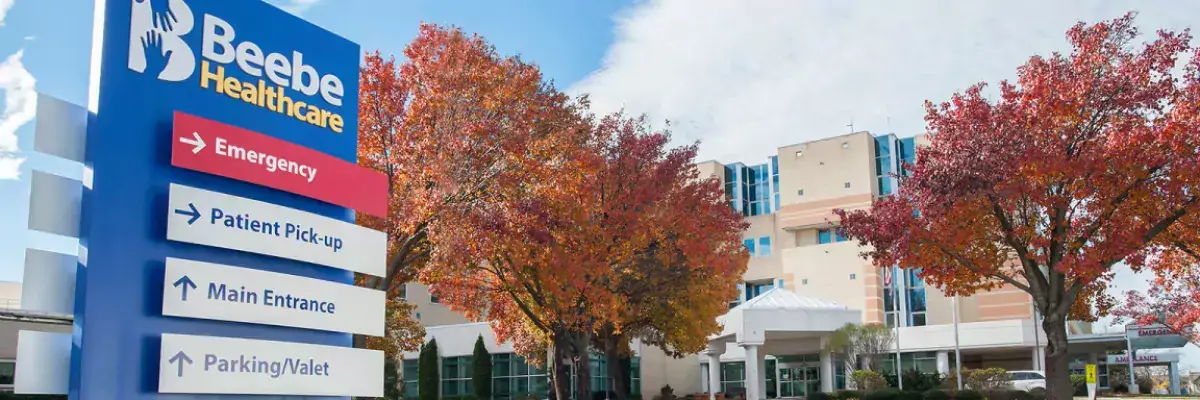TransCarotid Artery Revascularization (TCAR)
Beebe Healthcare is the first in the region to provide TCAR – transcarotid artery revascularization.
For patients who are at risk for stroke, traditional carotid surgery carries increased risk for stroke during traditional procedures such as carotid endarterectomy and stenting.
What is Carotid Artery Disease?
For many patients, the first sign they have carotid artery disease - the buildup of plaque inside the blood vessels leading to the brain - is a stroke or a transient ischemic attack (TIA). A stroke is a medical emergency that can leave you with permanent brain damage and muscle weakness. In severe cases, a stroke can be fatal. If you suspect someone is having a stroke, call 911 immediately.
Carotid artery disease can lead to stroke through:
- Reduced blood flow: If a carotid artery becomes so narrowed by atherosclerosis (buildup of plaques), blood flow is restricted and cannot reach the brain
- Ruptured plaques: If a piece of a plaque breaks off, it can travel into smaller arteries in your brain, which could cause it to get stuck, creating a blockage that cuts off blood supply to part of your brain
- Blood clot blockage: Some plaques are prone to cracking and forming irregular surfaces on the artery wall. If this happens, your body considers it an injury and sends blood cells that help the clotting process to the area. The result can be a large clot that blocks or slows blood flow to the brain, causing a stroke.
What is TCAR?
TransCarotid Artery Revascularization or TCAR – is designed to reduce the risk of stroke during the insertion of the stent. This procedure uses a special transcarotid neuro-protection system, which allows the surgeon to directly access the common carotid artery in the neck and initiate temporary blood flow reversal. By reversing the blood flow quickly during the procedure, the patient’s brain is protected from a stroke.
During the TCAR procedure, Beebe’s vascular surgeons make a small incision at the neckline, just above the clavicle. This incision is much smaller than would be made for a traditional carotid endarterectomy. The catheter is placed directly into the carotid artery and connected to the neuro-protection system to direct blood flow away from the brain, protecting against embolism that could reach the brain and cause stroke. Any embolic plaque is captured in a filter outside the body.
The filtered blood is then returned through a second catheter which flows into the patient’s upper leg. Once the stent is placed successfully, the blood flow is returned to normal.
What Are The Benefits of TCAR?
TCAR is a safe and effective way for patients with buildup in the carotid artery to be treated in a minimally invasive way. It is approved for use for patients who are considered at high risk of stroke, high risk for surgery, or high risk due to age and other medical conditions.
Benefits include:
- Smaller incisions
- Less recovery time
- Shorter hospital stays
- Lower risk of nerve injuries
“TCAR is an innovative procedure that allows surgeons to provide better patient care. During a TCAR, we do not need to navigate catheters through the aortic arch, which can lead to stroke,” said Sean Ryan, MD, of Beebe Vascular. “In addition, any fragments of plaque released during the procedure are safely filtered out. Offering this new minimally invasive option for our patients will dramatically reduce the risk of stroke and heart attack during and after carotid interventions.”
How Safe is TCAR?
Over 10,000 TCAR procedures have been performed worldwide through clinical trial and commercial use. TCAR has been studied extensively, and the clinical data have been excellent. In fact, the data are so compelling that the Society of Vascular Surgeons, Centers for Medicare and Medicaid Services (CMS), and the U.S. Food and Drug Administration (FDA) came together in September 2016 to create a program to support its reimbursement.
To learn more or to schedule: Call 302-644-4954.
